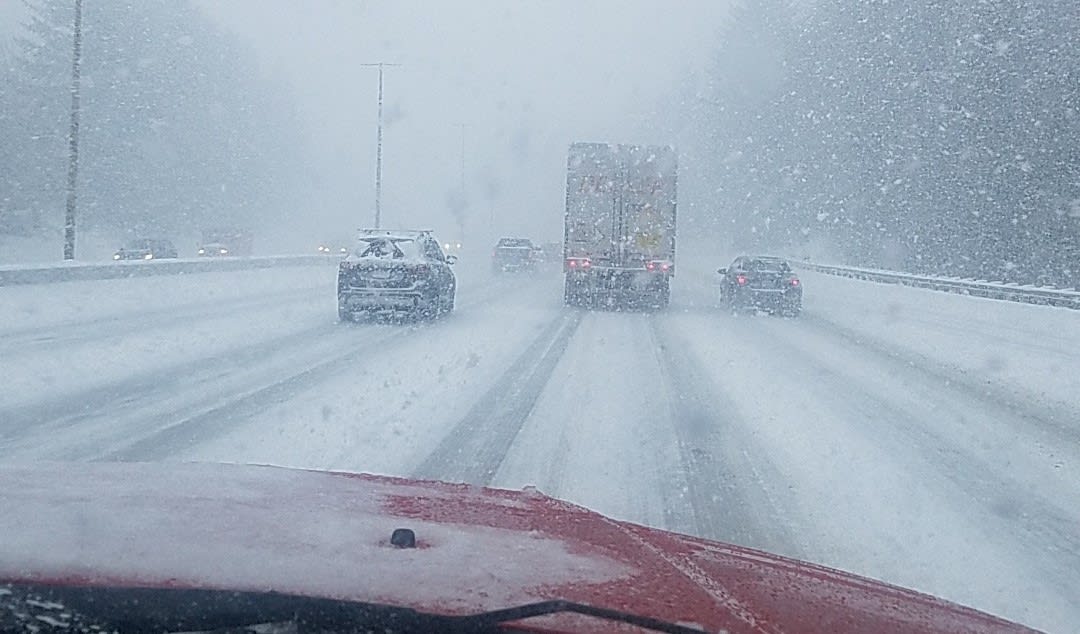How to prepare for and stay safe during a winter storm or power outage

At a glance
- Storms and power outages are common in the Pacific Northwest, especially in fall and winter
- Have a plan for your family, including an emergency preparedness kit and out-of-state contact
- During a power outage, do not use gas-burning devices or an oven to heat your home
Winter storms are part of life in the Pacific Northwest.
As we all hunker down and brace ourselves for storms to come, read on for tips about how to prepare for power outages, as well as guidance on what to do when the electricity goes out or you lose your heat. The following information includes highlights from the Jefferson County Public Utility District, the Centers for Disease Control and Prevention (CDC) and Take Winter By Storm.
Before the power goes out
Assemble an emergency preparedness kit. Maintain an easily accessible kit with the following items: flashlight, batteries, three days’ supply of nonperishable food and bottled water, battery-powered radio, first-aid kit, warm clothing, blankets, emergency phone numbers and any other necessities such as prescription medication. It’s a good idea to keep a kit at home and in the car.
Have a plan. When a storm hits, you and your family may not be gathered in the same place. It’s important that everyone knows where to go, what to do and how to communicate with each other if there’s an emergency. Choose a person outside of your area or state to be a main of point of contact for the group. It may be easier to reach this designated person with updates, rather than each other, if local cell towers and phone lines are down.
Fill your pantry. Keep your pantry supplied with a manual can opener and plenty of nonperishable food for you, as well as your pets if you have them.
Gas up your car. When the electricity goes out, you will likely not be able to pump gas at a service station, so you’ll want to make sure your vehicle has plenty of fuel ahead of a storm warning. Now is also the time to ensure your car is up to date with preventive maintenance.
Get familiar with your garage door. If you have an electric garage door opener, know where the manual release is and how to use it.
When the power goes out — what to do, what not to do
Turn off, unplug. Switch off all lights, except one — so you’ll know when the power comes back on — and unplug electronic devices like computers or TVs, which can be damaged by power surges when electricity is restored.
Keep refrigerator and freezer doors closed. During a power outage, limit how often you access your refrigerator and freezer. According to the CDC, a freezer can keep food safe for 24-48 hours, depending on how full it is. A refrigerator can keep food safe for up to four hours if the door remains shut. Throw out any refrigerated medication if the power is out for more than 24 hours, unless the medication’s label directs otherwise.
Access safe drinking water. During a power failure, water purification systems may not work properly. Use bottled, boiled or treated water for drinking, preparing food and personal hygiene. Learn more about how to treat drinking water for use in emergencies.
Never operate gas-burning devices inside. Portable generators, charcoal grills, camping stoves and similar gas-powered items should only be used outside, away from windows, doors and vents. Indoor use of these items causes dangerous odorless fumes to build up, leading to carbon monoxide poisoning and death.
Use generators wisely. Generators can be a helpful tool to have on hand when the power goes out. But if they are not installed or operated properly, they can be hazardous to your household as well as utility workers. Operate portable generators at least 20 feet away from your home. Avoid connecting a generator directly to the main circuit panel. Learn more about safe generator use.
Never heat your home with an oven or gas range. Leaving a gas range lit or your oven on with the door open releases carbon monoxide into the air, which can be fatal. To safely stay warm during a power outage, keep sleeping bags and heavy blankets on hand. Fireplaces or wood stoves can be used as long as they are up to code. Learn more about safe sources of heat during a power outage.
Exercise caution while driving. If you must leave your home during a power outage, be vigilant on the road. Road conditions may be hazardous, traffic signals are likely to be out and power lines may have fallen. If you come across a downed power line, do not go near it. Call 911 or your local utility company immediately.
For more tips about preparing for power outages or to access emergency preparedness checklists, visit Take Winter By Storm.



